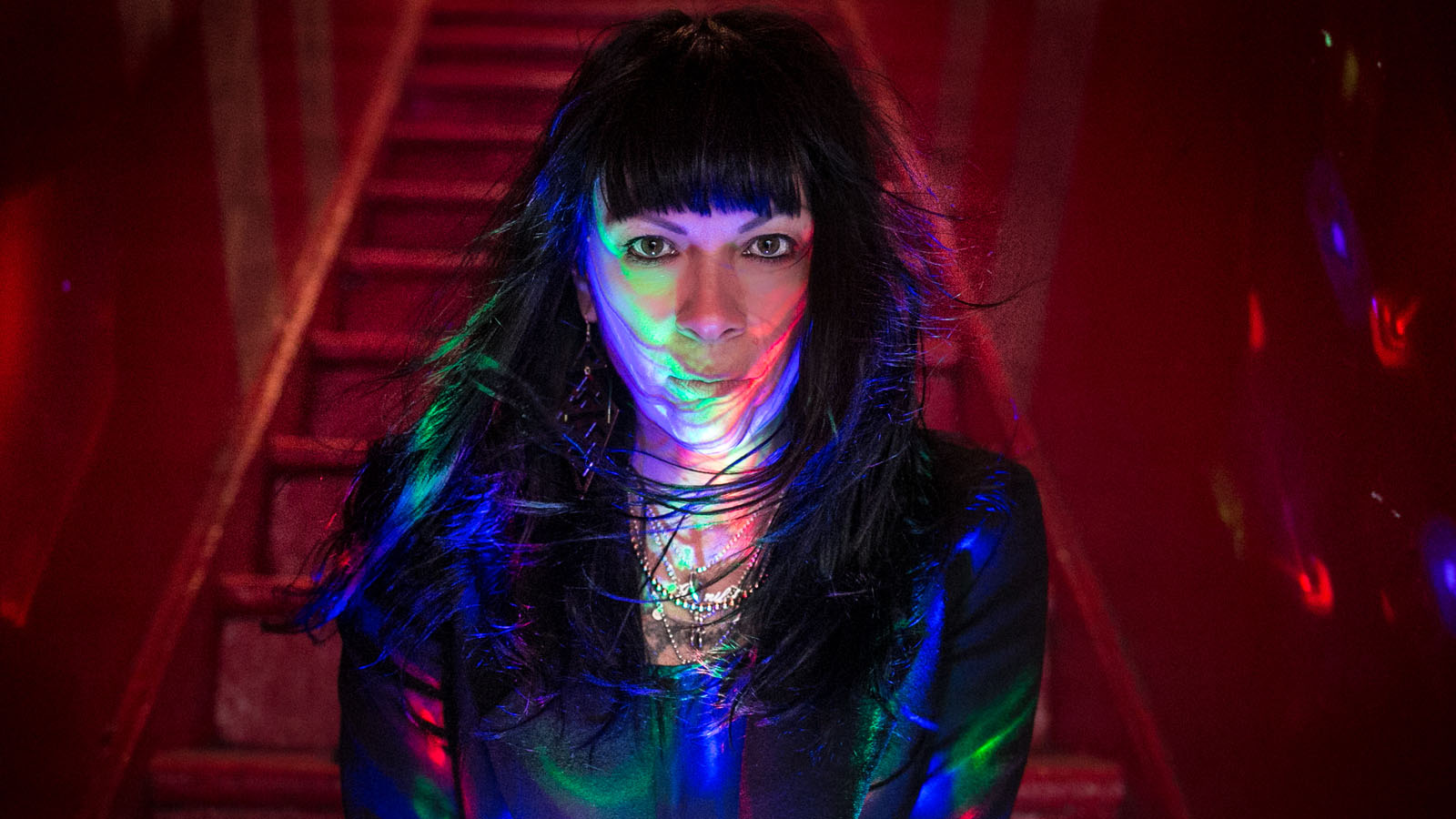
Jennifer Reeder is a proudly Chicago-based, truly independent filmmaker with over 25 years of experience in the business. She has directed more than 15 short films, screened her work in the Whitney Biennial and the Venice Biennale, and has won countless festival awards. Following a decade of under-the-radar acclaim, her second feature, Signature Move, was released in 2017 to critical fanfare. But it was 2019’s Knives and Skin that distinguished her as a promising and idiosyncratic director of genre cinema, followed by the wraparound segment of last year’s V/H/S/94.
Her latest feature, Night’s End, is a COVID-era lockdown film that doesn’t have much of anything to do with the pandemic, save for a confined setting and a shared sense of now-common dread and paranoia. It centers on Ken Barber (Chicago Fire’s Geno Walker), an anxious shut-in and noob YouTuber holed up in a haunted house. Night’s End is a Shudder production, now streaming on the horror platform in fantastic company with other genre titles of the past and present—not to mention an impressive roster of women-directed films. I talked to Reeder about her experience working with Shudder, her personal (and very bloody) relationship to horror cinema, the trials of shooting during the pandemic, and more, while she took a break from filming her next project in the parking lot of an old Chicago cemetery.
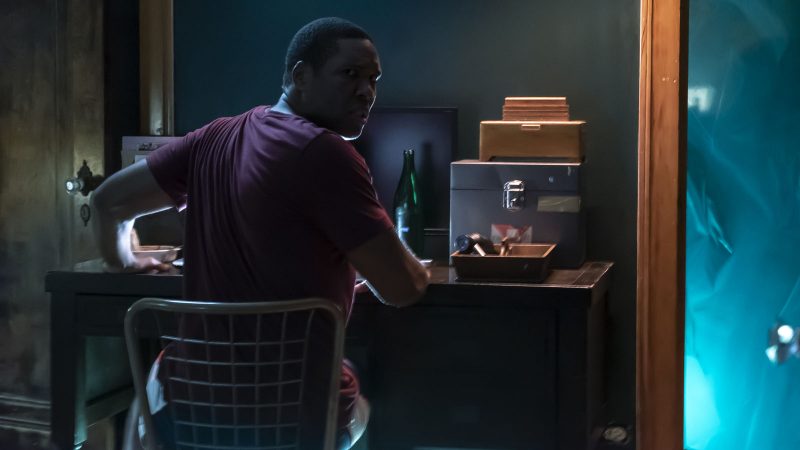
Night’s End is kind of breezy, but it’s also very pessimistic. I think all of us are more open to pessimism right now. We’re kind of embracing it.
That’s something I liked about this project: I got the opportunity to make a film with jump scares and a good chaotic ending, but at the same time nobody wanted it to be a COVID film. I think that Night’s End will live in a cohort of films from all over the world that were made in 2020, 2021, and some in 2022—films influenced by the global health crisis, by isolation, by the perils and also productivity of excessive alone-time. I’m definitely an introvert and there’s this notion in the film that Ken doesn’t want to leave the house, but he also doesn’t want to stay home, and I think that links to our own sense of mandatory stasis that a lot of us are still existing in. It’s a hard thing to make a movie about because you still want it to be entertaining at the end of the day.
I think a good shut-in movie is timeless. I know a lot of people—myself included—got really into watching YouTube during the lockdown stage of the pandemic, giving us access to other people’s homes. I like how in Night’s End Ken is in the beginning stages of trying to create this YouTube personality, which is a real thing now for a lot of self-employed people.
Oh yeah. I really like watching someone bare themselves at the most inopportune moments—like, it’s fine that you recorded that… but don’t post it! [Laughs] Ken has the most undynamic YouTube personality, yet he clearly finds it comforting to get these things off of his chest. That was also appealing to me, watching poor Ken unravel as he records these self-tapes and public posts.
Night’s End also has a lot of good abstract sequences. For such a nice, quick film, it still drifted out there several times in interesting ways.
Yes, and that was really intentional. Brett Neveu, who wrote the screenplay, is primarily a playwright and his original draft was so wordy, like a play. He’s a very good writer of dialogue but he hadn’t really built out Ken’s atmosphere. That’s something that I’ve developed a lot in my other films: speaking to the character’s interior. I’m always thinking about how an audience gets to know a character without being told directly. And so I was able to work pretty closely with Brett to prepare the script for shooting, which just involved giving Ken stuff to do in his apartment by himself and giving the audience certain information that Ken wasn’t offering to his friends and family members. We also worked to build an atmosphere that felt both isolating and claustrophobic but was also comforting for Ken. He carved out a place that actually felt very safe for him, without a lot of sunlight, [but] with the warmth of the orchid room and other kinds of local light. It was an atmosphere that was perhaps just outside the realm of reality, but sensorially he had built a space that felt very safe for him. Which of course turned topsy-turvy with the appearance of a ghost.
Brett Neveu’s sense of humor seems to really line up with your own. It’s similar to the black humor in Knives and Skin. Did that kind of symbiosis occur naturally or did you have to add to the script?
Brett is a very funny guy and his script was funny from the beginning, with a scary ending. There’s great chemistry between Ken and [his best friend] Terry [Felonious Munk], as well as Ken and [his ex-wife] Kelsey [Kate Arrington], so I could totally get behind those jokes. I like that they are slightly more broad than the jokes that I normally tell, which are sometimes jokes that only I laugh at, that other people might find too dark.
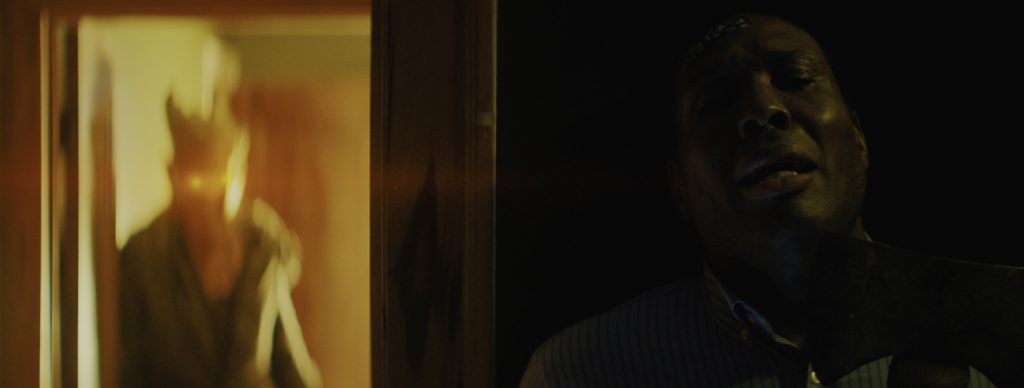
Can you tell us what it was like filming a Shudder production?
It was fantastic. When Brett came to me with his script, I was so antsy to make anything and knew that we could make this film with friends over a couple of weekends using our phones. Then we did a table reading over Zoom and we got some Steppenwolf [Theatre Company] ensemble members involved, as well as some of the cast of Chicago Fire. The whole thing went so well that I sent the script to my friend Sam [Zimmerman] at Shudder to see if they would be interested in getting involved. Sam put me in touch with Emily [Gotto, global acquisitions VP], and within 10 seconds she told me that they wanted to help make the film. And I’m still pinching myself at that level of commitment.
However, I’m not a producer and Brett is a playwright, so I reached out to my friend Neal Edelstein—who produced Mulholland Drive, The Straight Story, and the American adaptation of The Ring—and it still felt very much like making a film with friends. We were able to use proper cinema cameras, but it didn’t feel like a studio project. There were levels of approval, but nothing that interfered with our creativity. I feel really lucky in that regard, to have made something that has a small footprint for a feature film—but when it launched out of Shudder, their advertising campaign was A-plus. They supported this small film as though it were a much bigger production. I have nothing but love and gratitude for my Shudder fam.
You’re in great company, too, because Shudder has been knocking it out of the park with this library of women-directed horror films they’re building, without even drawing attention to it.
I really think it is organic. They love films and filmmakers, so it doesn’t feel tokenistic at all, and their support is very genuine.
Horror is such a complex genre. There are a lot of amazingly talented women involved but also a lot of notorious incel types both behind the camera and within the fan base. But Shudder doesn’t shut anyone out. They have something for everyone, and I love the possibility of viewers discovering and enjoying films that they might not normally watch.
I appreciate that [range] because Night’s End is a particular film. It’s a little slow, and I learned a few years ago from working on Knives and Skin that genre fans are a real spectrum. They’re just dogged cinephiles. I think Night’s End has a relationship to films like The Tenant or that whole Polanski apartment trilogy [which also includes Repulsion and Rosemary’s Baby]—although it bears saying that Roman Polanski himself is very problematic. But his apartment trilogy was very influential on the feel of my film. I think Shudder fans can appreciate a film that’s got a scary ending but is also a character study, a chamber piece.
What attracts you most to the horror genre?
I like to tell stories that aren’t automatically grounded in real-life drama. Even as a consumer, I’m not the type of person to look through the roster of a streamer and get excited about something like a gritty divorce drama. That’s too true-to-life. I’d rather watch something that sends me into the world of art and cinema, the surreal and the fantastic. It’s also a great place for a visual storyteller like myself. I can write dialogue that doesn’t have to be so naturalistic and the performances can be deadpan or awkward.
As a woman, I do embrace the bodily and the abject. I have three children and I think that childbirth itself is genre! Being able to talk [through the horror genre] about my experience as a woman, specifically with blood and my body, is very important. And I don’t have to make it explicit that a scene where a woman is covered in blood from head to toe is about childbirth. It’s not that literal, but it is about being comfortable with images that belong in the horror genre but are also partially based in real life—images that we don’t normally talk about in detail. I mean, if you look at any mainstream commercial, you’d think that menstrual blood is pale blue. And I’m not about to cover anyone in pale blue goo in any of my films, you know?
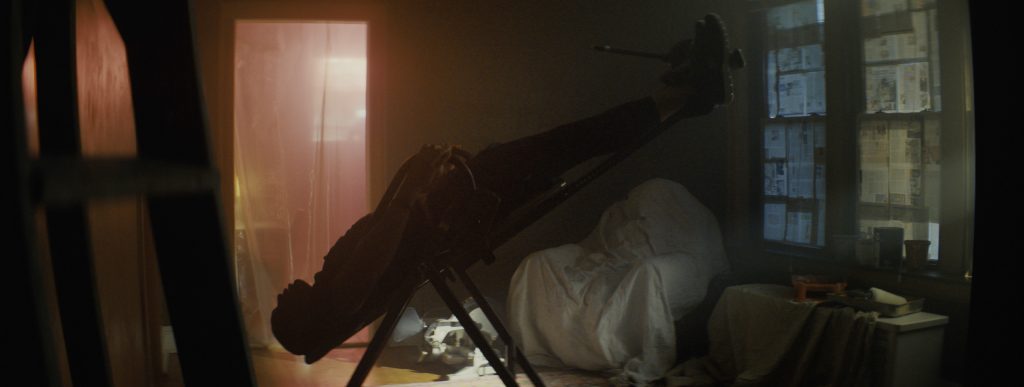
Can you talk about the film you’re working on right now?
I can tell you some basic details; for instance, it is a coming-of-age shape-shifter story. I wrote the screenplay and I’m directing it, so it’s coming much more from my DNA than Night’s End, although of course I feel very proud of that film. This new film is related to the world of Knives and Skin in the sense that it’s another coming-of-age story. It’s also more of a genre film, with some proper bludgeoning and lots of good jump scares. I can’t yet say who the cast is, but I’m psyched that we’ve got some very interesting, visible actors in roles we’ve never seen them in before.
This is a project that we were supposed to shoot in 2020 in New Orleans, because it’s got a kind of Gothic sensibility. I wanted to do something that was properly noir in a city like New Orleans or even Savannah, but both of those places became very different during the pandemic, infrastructurally, to shoot in. I live in Chicago, so anytime I can sleep in my own bed at night I will take that opportunity. We’re on day 18 of a 20-day shoot right now, and we’ll go into postproduction and launch out of festivals and go theatrical and all of that good stuff in 2023.
Twenty days is only one week longer than the Night’s End shoot. That’s pretty quick.
Oh, it’s bonkers, and the scope of this film is 10 times bigger than Night’s End’s. I don’t even know how we’re doing it, but we’re making our days and so far no actor has stormed off set or anything like that [Laughs]. It’s also been a challenge shooting in March and April in Chicago because of the cold and rainy weather.
Gothic shape-shifting. That sounds great.
All of the Knives and Skin superfans are going to really love this film. It’s definitely still coming from my weird space, but it’s a little more grounded in reality. It’s also not as drifty as Knives and Skin. The plot is more causal, but there are still lots of fantastic surreal moments in it. I really like to lead an audience down a path to a totally unexpected place. 🩸
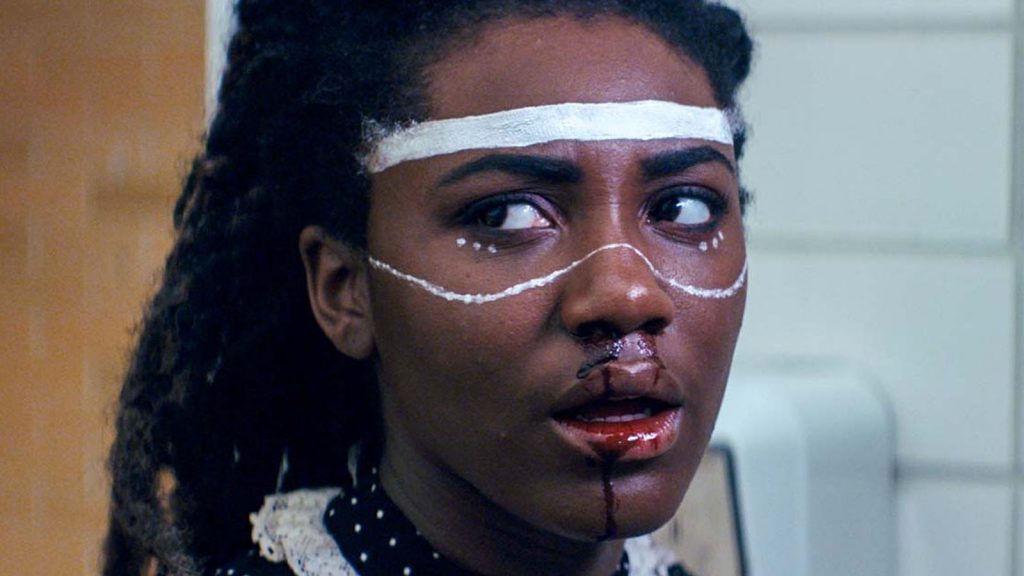
is the host of “No Pussyfooting,” an online radio show on www.kpiss.fm. She is the editor of Paul Verhoeven: Interviews (UPM) and has contributed to Film Comment since 2006.
Though she’s not generally counted among the canon of horror’s distinguished performers....
BY KELLI WESTON | May 9, 2024
High-concept, no-frills horror is writer-director-editor-composer Andy Mitton’s modus operandi.
BY LAURA KERN | December 5, 2022
Lucile Hadžihalilović has an exquisite talent for exploring the unique, manic hells that flow forth from helicopter parenting.
BY VIOLET LUCCA | August 12, 2022
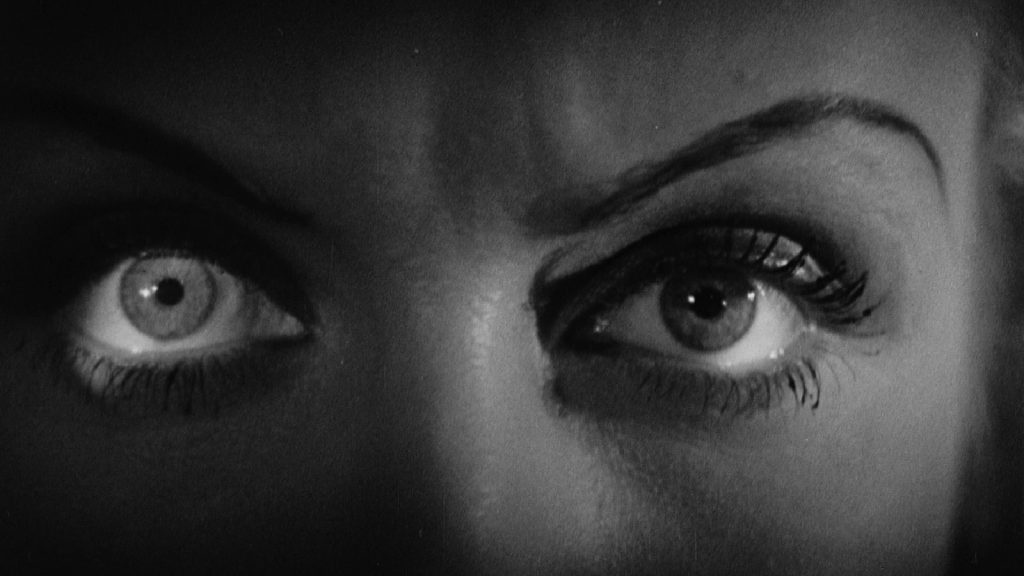
This pre-Code offering packs a lot of story into its typically brisk running time, with several plot threads weaving together a (not always successful) tapestry of spooky and criminal doings.
READ MORE >
BY ANN OLSSON | Month 00, 2021
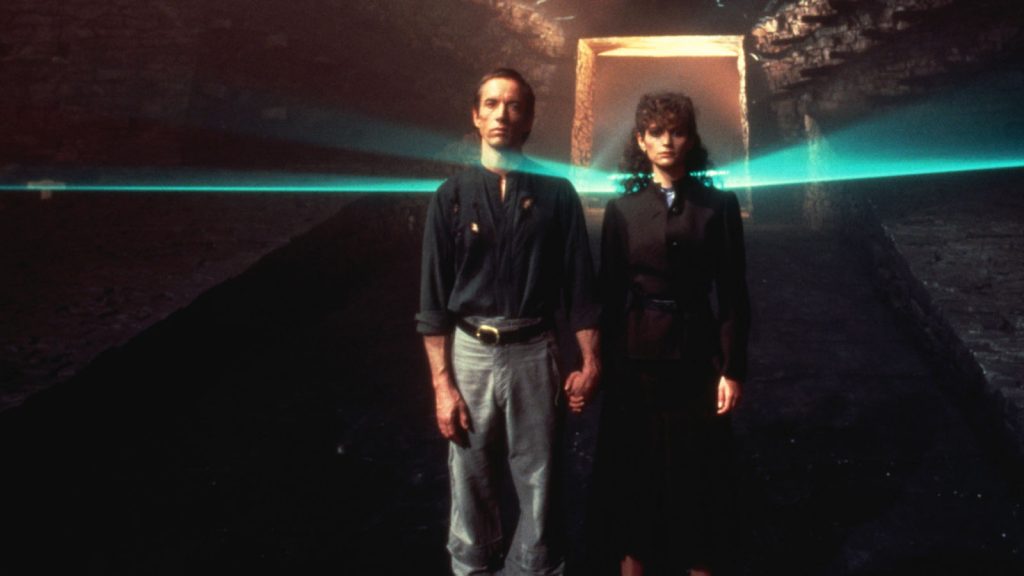
In what could be the fastest-resulting rape revenge movie, a drunken lout brutally forces himself on Ida, the young woman who doesn't return his affections, during a party over Labor Day.
READ MORE >
BY LAURA KERN | Month 00, 2021
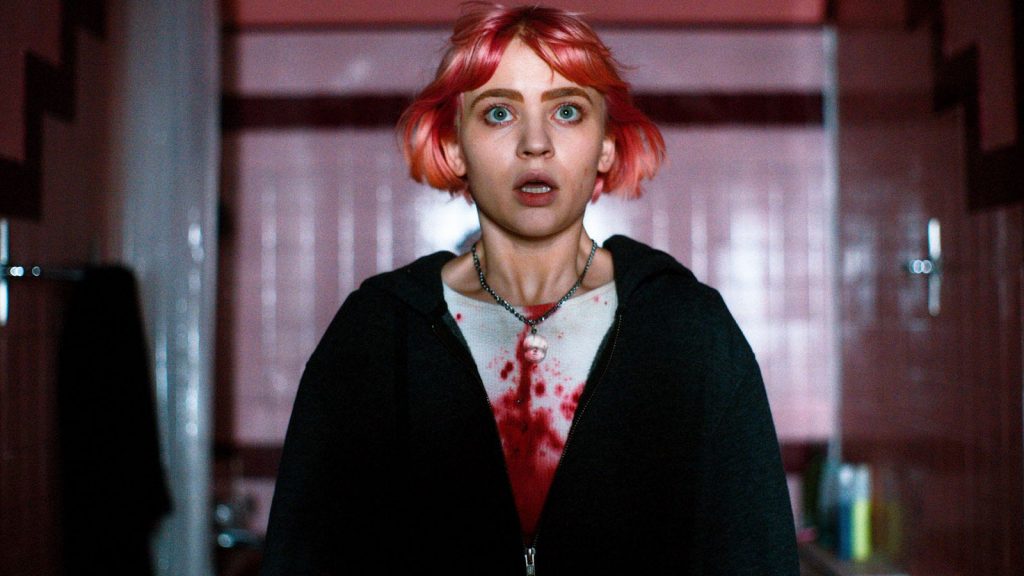
Beast is a lot of movies in one package - fractured fairy tale, belated-coming-of-age story, psychological drama, regional horror film - but above all it's a calling card for its leading lady, Jessie Buckley.
READ MORE >
BY LAURA KERN | Month 00, 2021